Never Miss a Chance to Make a Difference
Subscribe to KIPP New Jersey’s email newsletter and stay in the loop.

Each year, KIPP New Jersey chooses one unifying academic priority to implement across the schools in our network. Often these goals reflect what we want to see taking place in our classrooms every year--but highlighting a priority helps us all rally towards a common goal and energize our kids and community. You might remember last year’s initiative, Our Kids Love to Read and We Do Too. Our kids read millions of words collectively, thanks in part to that focus!
This year’s academic priority is Our Kids Love to Learn, and We Do Too. This priority is all about curiosity and connection. We want to deepen the level of cognitive engagement our kids experience during lessons, inspire their curiosity about content, and connect with them both academically and emotionally. Our hypothesis? If we encourage authentic engagement in our classrooms, this will be another important step forward towards helping our kids achieve at the levels at which we know they are capable and change the world!
At a region-wide professional development session last spring, a few of our Newark and Camden educators, along with Chief Academic Officer Sarba Aguda priority--shared how their own experiences as children informed their approach to student engagement in the classroom. Hear their stories below.
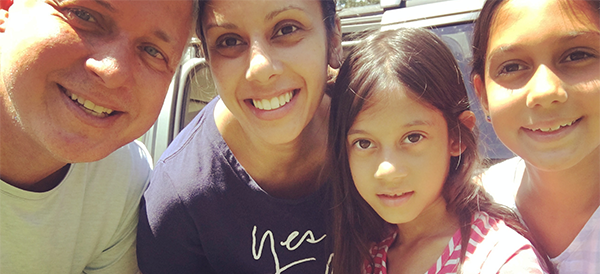 Sarba Aguda
Sarba Aguda
Chief Academic Officer
This is not a story about challenge, really. It’s just a story about a teacher who chose to do something different and right and how that choice was everything to me as a learner.
I remember sitting by myself in a room with lots of colorful posters, watching Sesame Street. My mother had explained to me that I was to watch Sesame Street until I understood enough English to be with the other children. I’m SURE there was other instruction happening as well, but I just don’t remember it. What I do remember is staring at the videos, rewinding and replaying the VHS tapes, gradually absorbing new information and new words, and sharing small updates with a teacher who came and checked in on me. I also remember the loneliness and isolation of being in that space and the dissonance of the happy, colorful characters on the screen. I didn’t make much progress.
But after some time in this situation, Mrs. D., my kindergarten teacher, had had enough I guess. She called my parents and asked that they request I come out of the ESL placement and be included in her class again. I don’t remember all the details of what happened next, but I started going to her room again, and she just talked to me the way she talked to all the other children. I remember sitting in a small group with her one day near the end of the school year. She was reading to me, pointing to pictures and saying the words beneath them. Then I remember her smiling at me and saying, “Will you try, Sarba?” In that question, there was all her optimism for me, all her understanding if I wasn’t ready, and also her inherent expectation that eventually I would get it. I could sense it in that moment. So I read the page she had just read, and feeling brave, I read the next two or three pages too. Something in that moment clicked for me -- I knew what she wanted from me, and how to make the words and pictures and letters all work together. When I think about ‘Promises to Children Are Sacred,’ the earliest person in my life that I think of is Mrs. D, who pulled me back in from isolation and taught me to read and inspired me to find my voice.
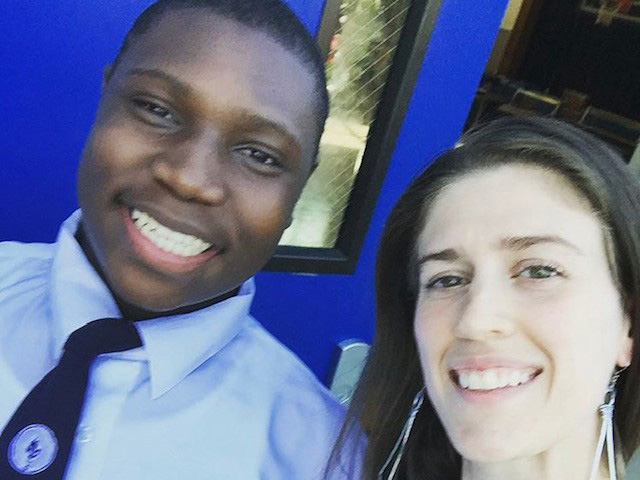 Kristen Kell
Kristen Kell
Assistant School Leader, KIPP Rise Academy
When I was a young child, my mom sat down with me on a rainy day for a project. She presented me with lots of tiles of different shapes and asked me to figure out how to make rectangles out of them. I remember it took me a really long time to get it right. Finally, I proudly shared my work. At the end, she revealed they were algebra tiles and that her college students were doing the same work in class as they factored polynomials--my mother taught remedial math to students at a local community college. What I remember most from that day was feeling like I had accomplished something that was really hard, but that I was engaged the whole time. I also remember feeling a sense of closeness with my mom. I wound up becoming a math major!
This coming year, I want to make sure our kids have those experiences and that they have that personal connection to their learning. But I want them to learn for the thrill of being challenged and experience the joy that comes with succeeding.
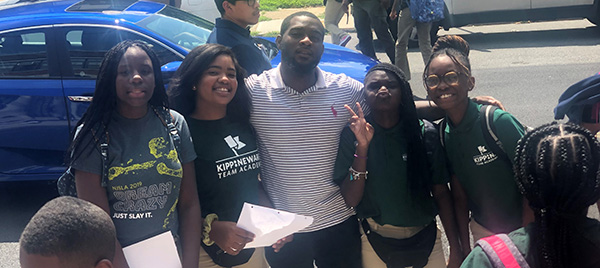 Yumar Wheeler
Yumar Wheeler
Teacher in Residence, KIPP TEAM Academy
As a KIPP NJ alumni heading into my second year of teaching at KIPP TEAM Academy, I experienced first-hand the power of student engagement that comes from great relationships between kids and teachers. I knew Shawadeim Reagans as a middle schooler and as a black male figure, I found I could relate to him which was powerful for me. It’s so important for us to engage students by showing them that we care about their lives. I seek to understand my students as people and teach them that when it comes to life, every day presents a new day and a new opportunity for success.
As a middle schooler, I remember the transition to KIPP from a district school felt really different, but I knew that my new teachers cared about us learning. I distinctly remember that in sixth grade, we mummified chickens with Ms. Moore to learn about that process from the perspective of science and history. It was smelly and gross, but we got to experience what that process was like firsthand--and I’ve never forgotten it!
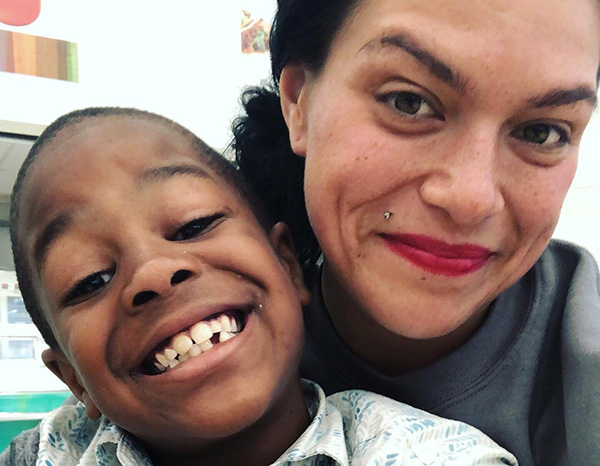 Linden Reed
Linden Reed
Behavior Specialist, KIPP Lanning Square Primary
Growing up, I was a pretty decent student, and I didn’t usually get into any real trouble. I had a great relationship with my math teacher, Mr. Landis, whom I just loved. One day there was a pause in the class--and it was a point where students who had struggled on a quiz could seek extra help. I raised my hand and said something obnoxious like, “Well, what do you do if you got 110%?” I remember his reaction so clearly. He didn’t get mad at me. He just looked at me surprised and said simply, “That’s not very kind.” I remember thinking, ‘Wow...I can’t believe I was so mean!”
As a behavior specialist today who works with some of our hardest to reach scholars, I like to think that I help kids succeed because of the relationships I build with them. I want to create an atmosphere where kids follow the rules because they respect me, one another, and themselves. In my morning check-ins, I do a lot of play-acting where I’ll play both teacher and student. I had a little girl who would get frustrated if she couldn't get her teacher’s attention immediately--she hated being ignored. We would rehearse situations with her as a teacher, and I would do something ridiculous--like stomp my foot for attention. It worked, because it was easy to see why a teacher couldn’t call on her when she acted this way and also gave her a chance to practice it correctly. The key message wasn’t naming the consequence for misbehavior. Iit was that “being respectful is the best way to get my teacher’s attention.”
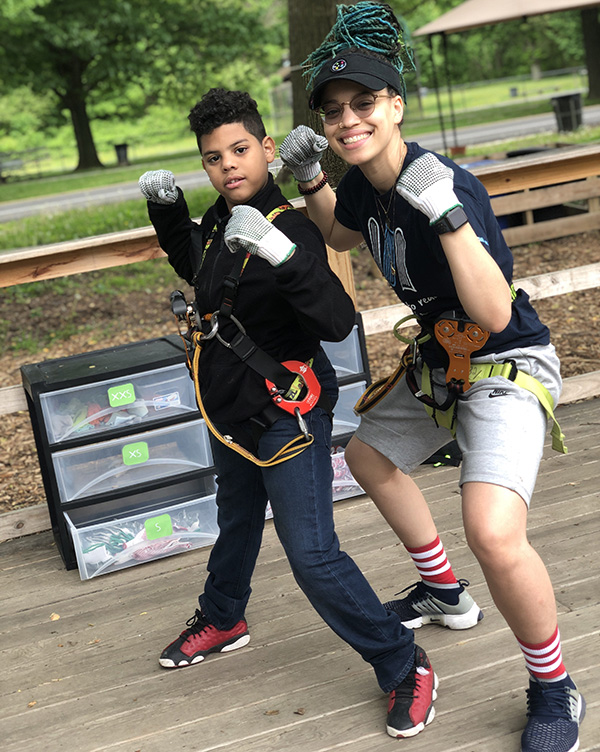 Nairobi Colon
Nairobi Colon
History Teacher, KIPP Whittier Middle
When I think of engaging teachers, I think of my second grade teacher, Ms. Macconette. As a child, I had the bad habit of sucking my thumb. My parents had tried everything, from taping it to putting hot sauce on it. Nothing worked. Ms. Macconette worked with my parents to come up with an idea: Every time I sucked my thumb, she would stop her lesson and put a mark on top of the board. No one else knew what it meant, but I did. I stopped doing it, because I realized I cared about how she viewed me and wanted to stop to make her happy. It was a little thing, but her approach showed she cared about me and that helped to set me up for success.
Ms. Macconette showed she cared about me in so many different ways. She always made sure my work was done--and done well. I would check in with her a lot, and if I wasn’t understanding a concept, I would go back and do it again. Sometimes she’d give me extra work or encourage me to tutor other students. When I think of student engagement and the kind of teacher I want to be, I think of Ms. Macconette and her ability to make me feel cared for--while holding me to high standards. That’s the kind of teacher I want to be for my students.
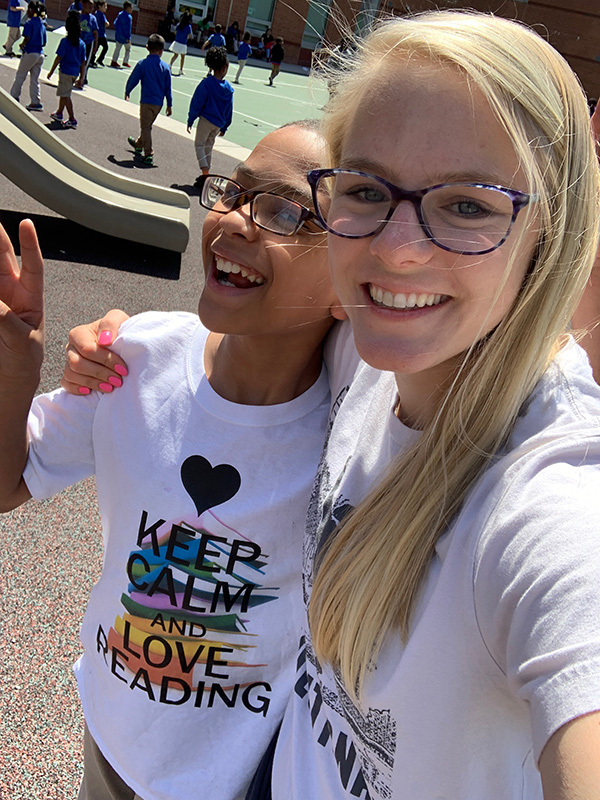 Heather Baker
Heather Baker
Math Teacher, KIPP Lanning Square Middle
When I was in third grade, I thought I was a fantastic student--especially in math. When we did competitions reciting our multiplication tables, I would always win. But I had a weakness--which was word problems. I wasn’t a strong reader.
My teacher caught on and tried to help me. He saw my anxiety about word problems and told me I knew how to solve the math in a word problem, but I didn’t know what the problem was asking. So he made me act it out. At lunch and recess, we would go through word problems together and take on the roles of the people in the problem. This helped me visualize what I needed to solve.
Today, I try to model that same approach with my fifth grade mathematicians at KIPP Lanning Square Middle. At the launch of every unit, we start by acting out a problem, and I have different members of the class play different roles for each problem. I encourage them to turn and talk to a partner to share their approaches to a given problem. I look forward to seeing how we can take engagement in math to a new level with next year’s priority of academic engagement!
Subscribe to KIPP New Jersey’s email newsletter and stay in the loop.